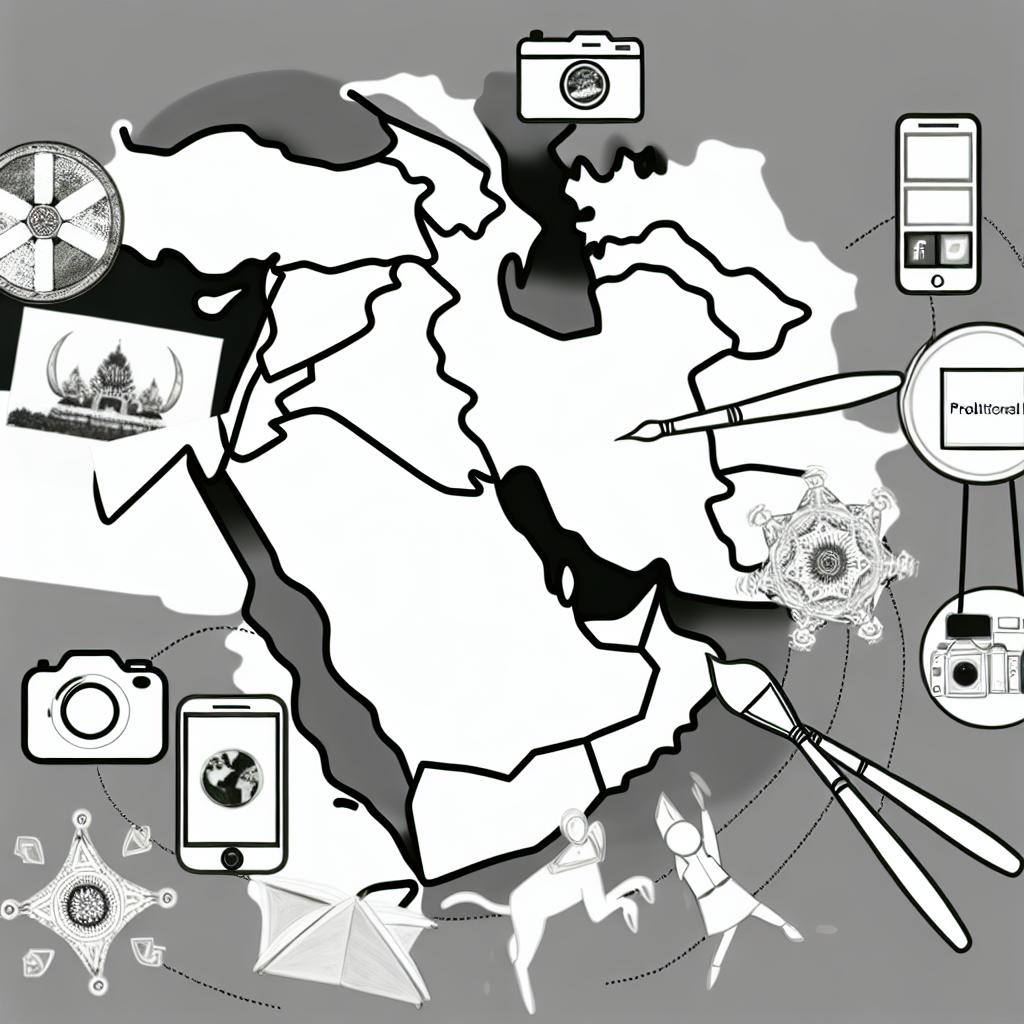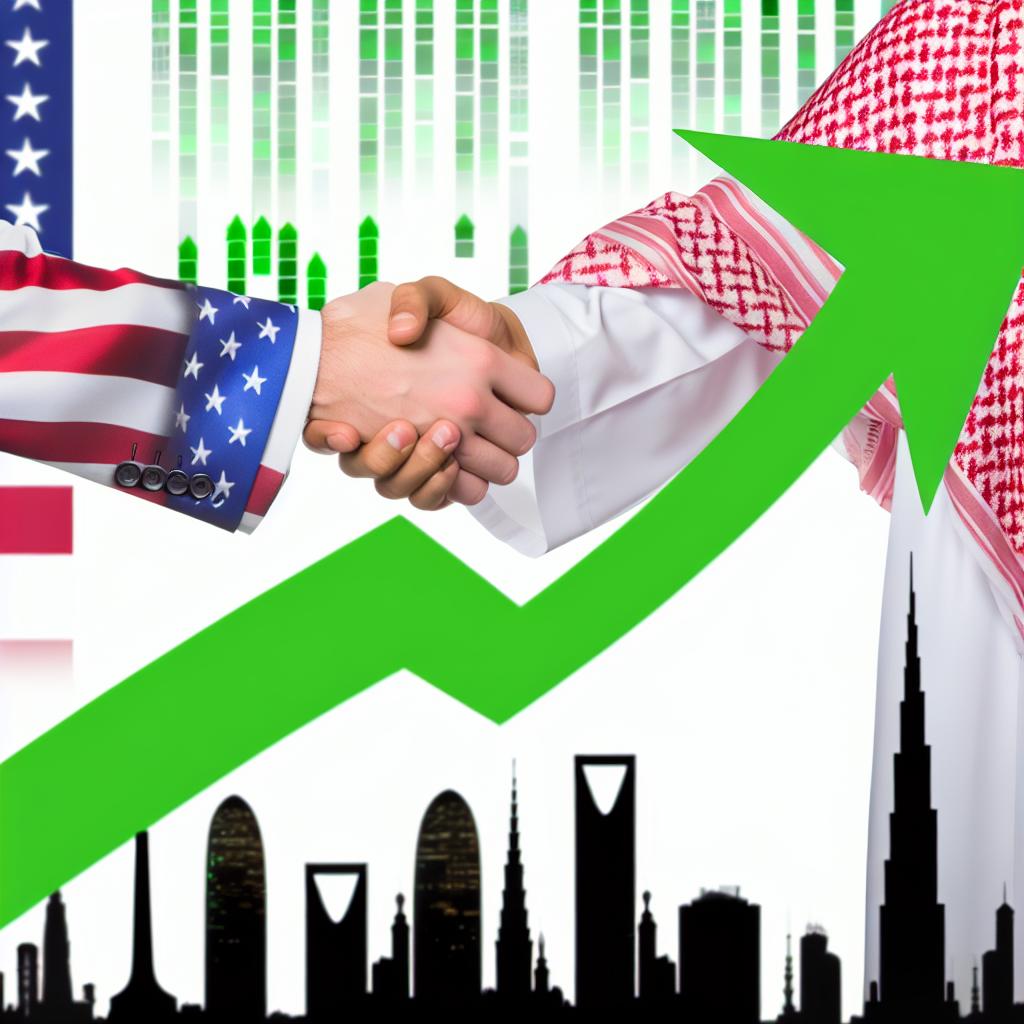Introduction to U.S. Public Relations Firms and Saudi Arabia’s Collaboration
The collaboration between U.S. public relations (PR) firms and Saudi Arabia plays a significant role in shaping the kingdom’s global image. These partnerships are a cornerstone of Saudi Arabia’s strategic vision to improve its international perception, attract investment, and diversify its economy beyond oil.
Historical Context of the Saudi-American Public Relations Connection
The relationship between Saudi Arabia and U.S. PR firms is not a recent development. It dates back several decades, with heightened collaboration particularly visible following the geopolitical shocks and global scrutiny stemming from high-profile events. As the kingdom faced various challenges in the global arena, it sought to leverage American expertise in reputation management to ensure its narratives were effectively communicated to international audiences.
Initially, the partnerships were primarily concerned with oil, which is the kingdom’s main economic driver. As Saudi Arabia became a major player in the global oil market, it needed to cultivate a favorable image among international stakeholders. U.S. PR firms facilitated this by crafting strategic communications that presented the kingdom as a reliable energy partner. Over time, as the world’s attention increasingly turned to human rights and other socio-political issues, the focus of these collaborations also expanded to address such topics.
Objectives of Saudi Arabia’s PR Campaigns in the U.S.
Saudi Arabia’s goals in contracting U.S. PR firms are manifold. Primarily, these engagements aim to:
Enhance the kingdom’s image as a modern nation. This involves projecting an image of advancement and progress, often by highlighting developments in infrastructure, culture, and technology.
Facilitate investment opportunities by projecting stability and growth potential. Successful communication of this stability and potential growth is key in attracting foreign investors, thus fueling economic diversification efforts.
Counter negative narratives and respond to global criticism related to human rights and political issues. Saudi Arabia leverages U.S. expertise to manage and address such criticisms, aiming to control and reduce their impact on its international relations.
The Role of Vision 2030 in PR Efforts
Vision 2030, unveiled by Crown Prince Mohammed bin Salman, is central to Saudi Arabia’s modern image. It outlines an ambitious plan to revamp several sectors, emphasizing tourism, technology, and culture. U.S. PR firms help promote this vision globally, ensuring that the international community recognizes Saudi Arabia’s efforts to transform its economy and society.
An essential part of this vision is enhancing the kingdom’s cultural footprint. Initiatives like encouraging international cultural festivals and developing entertainment cities are publicized widely by PR firms to underscore the kingdom’s commitment to modernization.
Strategies Employed by U.S. Public Relations Firms
American PR firms employ a variety of strategies to shape Saudi Arabia’s global image:
Media Engagement and Influencer Collaboration
Strategic media placement is a key tactic. U.S. PR agencies orchestrate interactions with major news outlets and engage influencers who can portray Saudi Arabia positively. The aim is to create goodwill and positive coverage in influential publications.
To amplify this effect, PR firms often organize press trips where journalists and influencers are invited to visit the kingdom. These trips are designed to showcase the positive aspects of Saudi society and culture, often resulting in favorable articles and social media content. Additionally, PR firms arrange exclusive interviews with Saudi officials, helping to articulate the kingdom’s narrative directly to international communities.
Crisis Management
Another critical area is crisis management. In times of controversy, U.S. PR firms ensure that Saudi Arabia’s responses are swift and aligned with international norms. They assist in drafting statements, hosting press conferences, and controlling negative press to mitigate damage to the kingdom’s image.
These firms are skilled in re-framing narratives to turn potential crises into opportunities for positive engagement. For instance, in response to allegations or negative press, the firms might highlight steps the kingdom is taking to improve or rectify certain situations, thereby showcasing a commitment to change and improvement.
Lobbying Efforts
Lobbying is a subtle yet effective tool. While traditional PR focuses on public image through media, lobbying efforts target policymakers and opinion leaders. U.S. firms leverage their networks in Washington D.C. to analyze and influence legislation that might impact Saudi interests.
Through carefully curated lobbying campaigns, these firms work to align Saudi interests with U.S. policy objectives, often positioning the kingdom as a vital ally in the Middle East. By doing so, they aim to foster a political environment that is conducive to strengthening bilateral ties.
Challenges and Criticisms
Despite the robust efforts of U.S. PR firms, there are challenges and criticisms associated with this collaboration. Some critics argue that these relationships may obscure genuine accountability and reform within Saudi Arabia. Furthermore, transparency regarding the nature and extent of these engagements is often questioned, raising ethical concerns about foreign influence in U.S. media and politics.
There is a constant debate over the impact of these PR efforts on the perception of human rights issues within Saudi Arabia. Critics insist that PR firms can sometimes act as barriers to accountability, focusing more on narrative control rather than advocating for substantive reforms. This raises questions about whether the assistance provided is merely cosmetic.
Moreover, the extent to which foreign PR firms should be involved in shaping international perceptions, especially when it intersects with political and cultural issues, remains a contentious topic. The fact that significant sums are spent on such initiatives also leads to questions about priorities, especially given the socio-economic challenges still present within the kingdom.
The Future of Saudi-American PR Collaborations
As Saudi Arabia continues to pursue its Vision 2030 goals, the role of U.S. PR firms is likely to expand. With the kingdom’s determination to play a more significant role in global affairs, strategic communication will remain a vital component in its international strategy. The collaboration will continue to evolve, facing scrutiny but also presenting opportunities for enhancing the kingdom’s global stature.
There are indications that these collaborations may grow to incorporate more digital PR strategies. As the world becomes increasingly digital, leveraging social media platforms and other digital channels will become even more critical to reach global audiences effectively. Additionally, there is potential for increased collaborations in areas like sustainability and technology, as these are focal points of the Vision 2030 plan.
In conclusion, the intricate dynamics between U.S. public relations firms and Saudi Arabia highlight a blend of diplomacy, strategic communication, and mutual interests, shaping the narrative of a nation in transition on the global stage. This partnership is likely to continue evolving, reflecting the shifting landscapes of international relations and communication strategies.
This article was last updated on: May 4, 2025




